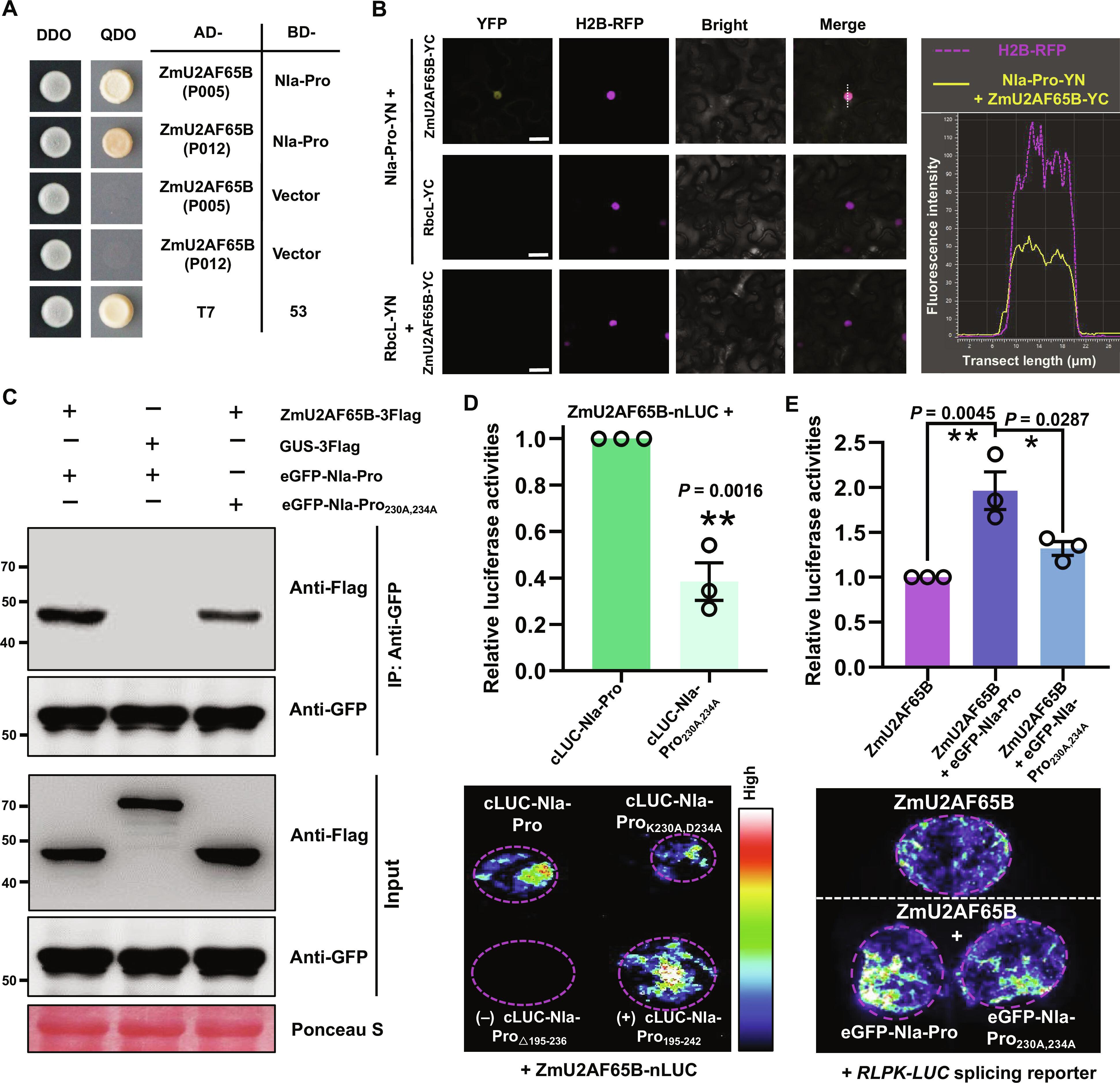Maize splicing-mediated mRNA surveillance impeded by sugarcane mosaic virus-coded pathogenic protein NIa-Pro
IF 11.7
1区 综合性期刊
Q1 MULTIDISCIPLINARY SCIENCES
引用次数: 0
Abstract
The eukaryotic mRNA surveillance pathway, a pivotal guardian of mRNA fidelity, stands at the nexus of diverse biological processes, including antiviral immunity. Despite the recognized function of splicing factors on mRNA fate, the intricate interplay shaping the mRNA surveillance pathway remains elusive. We illustrate that the conserved splicing factor U2 snRNP auxiliary factor large subunit B (U2AF65B) modulates splicing of mRNA surveillance complex, contributing to transcriptomic homeostasis in maize. The functionality of the mRNA surveillance pathway requires ZmU2AF65B-mediated normal splicing of upstream frameshift 3 (ZmUPF3) pre-mRNA, encoding a core factor in this pathway. Intriguingly, sugarcane mosaic virus (SCMV)–coded nuclear inclusion protein a protease (NIa-Pro) hinders the splicing function of ZmU2AF65B. Furthermore, NIa-Pro disrupts ZmU2AF65B binding to ZmUPF3 pre-mRNA, leading to dysregulated splicing of ZmUPF3 transcripts and, consequently, impairing mRNA surveillance, thus facilitating viral infection. Together, this study establishes that splicing governs the mRNA surveillance pathway and identifies a pathogenic protein capable of disrupting this regulation to compromise RNA immunity.

玉米剪接介导的 mRNA 监控受到甘蔗花叶病毒编码的致病蛋白 NIa-Pro 的阻碍。
真核生物 mRNA 监控途径是 mRNA 保真度的关键守护者,是包括抗病毒免疫在内的各种生物过程的核心。尽管剪接因子对 mRNA 的命运具有公认的功能,但影响 mRNA 监控途径的错综复杂的相互作用仍然难以捉摸。我们发现,保守的剪接因子 U2 snRNP 辅助因子大亚基 B(U2AF65B)能调节 mRNA 监控复合物的剪接,从而促进玉米转录组的平衡。mRNA 监控通路的功能需要 ZmU2AF65B 介导的上游移帧 3(ZmUPF3)前 mRNA 的正常剪接,ZmUPF3 编码该通路中的一个核心因子。耐人寻味的是,甘蔗花叶病毒(SCMV)编码的核包涵蛋白 a 蛋白酶(NIa-Pro)阻碍了 ZmU2AF65B 的剪接功能。此外,NIa-Pro 会破坏 ZmU2AF65B 与 ZmUPF3 pre-mRNA 的结合,导致 ZmUPF3 转录本的剪接失调,进而影响 mRNA 的监测,从而促进病毒感染。总之,这项研究证实了剪接控制着 mRNA 监控途径,并确定了一种致病蛋白能够破坏这种调控,从而损害 RNA 免疫。
本文章由计算机程序翻译,如有差异,请以英文原文为准。
求助全文
约1分钟内获得全文
求助全文
来源期刊

Science Advances
综合性期刊-综合性期刊
CiteScore
21.40
自引率
1.50%
发文量
1937
审稿时长
29 weeks
期刊介绍:
Science Advances, an open-access journal by AAAS, publishes impactful research in diverse scientific areas. It aims for fair, fast, and expert peer review, providing freely accessible research to readers. Led by distinguished scientists, the journal supports AAAS's mission by extending Science magazine's capacity to identify and promote significant advances. Evolving digital publishing technologies play a crucial role in advancing AAAS's global mission for science communication and benefitting humankind.
 求助内容:
求助内容: 应助结果提醒方式:
应助结果提醒方式:


